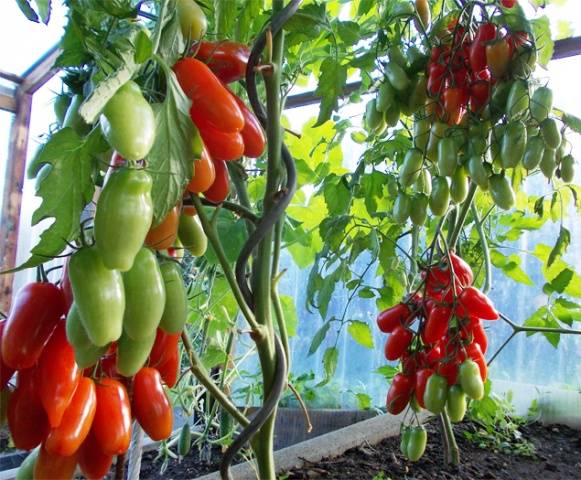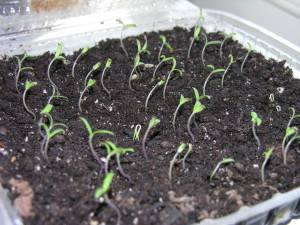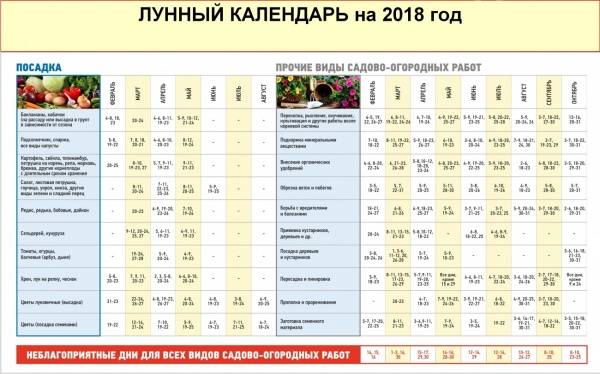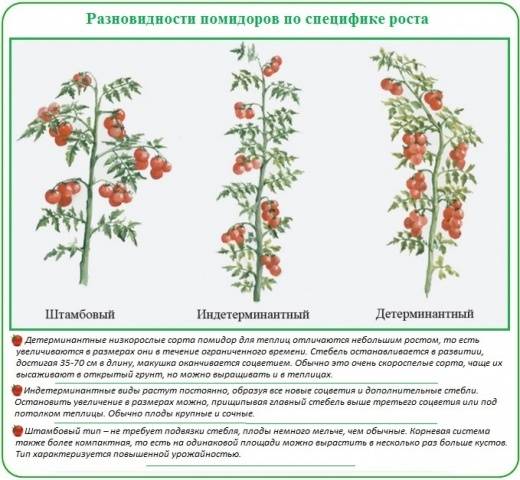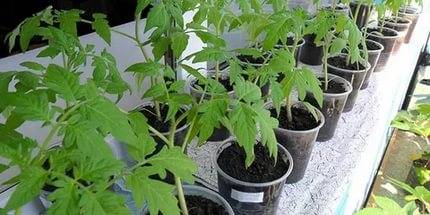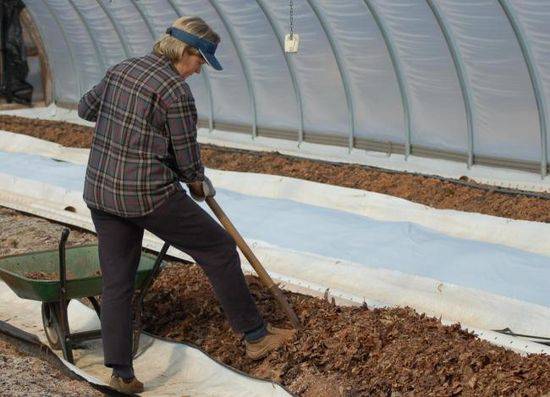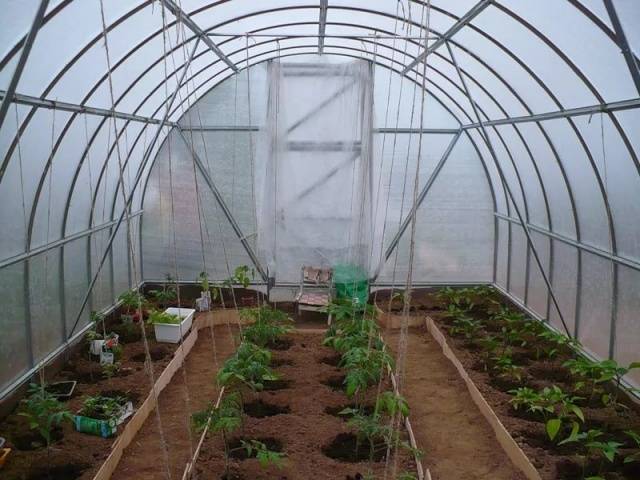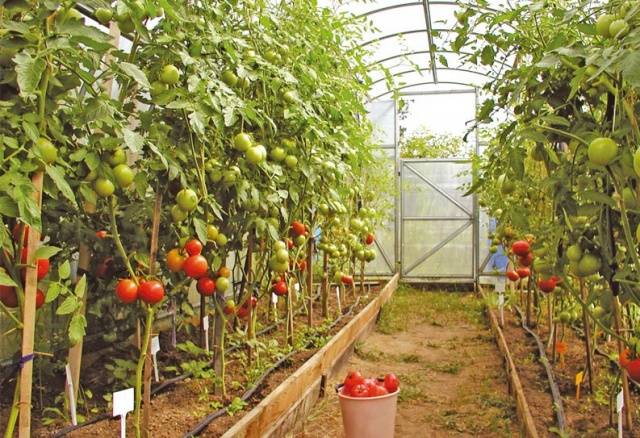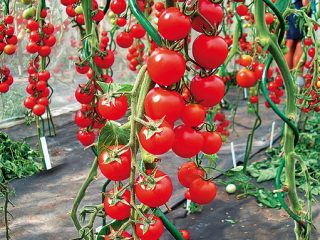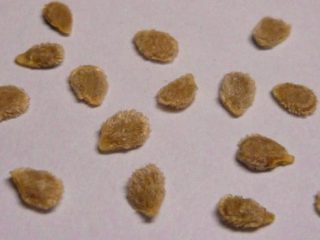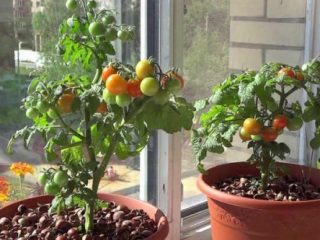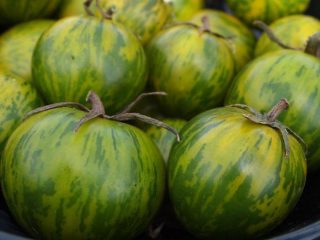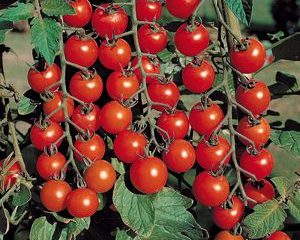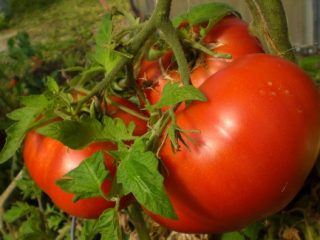Content
Tomatoes have long been considered the most beloved vegetable on the planet. It’s not for nothing that breeders have created a huge number of varieties. The vegetable is necessary for nutrition for children and adults. Therefore, it is grown not only in open ground and in greenhouses. Some gardeners manage to get good harvests on balconies and loggias. But we will talk about a specific place for planting tomatoes: in a greenhouse made of cellular polycarbonate.
It is clear that the choice of place for planting vegetable crops affects the yield, as well as the timing. Therefore, the question of when to plant tomatoes in a polycarbonate greenhouse is very important, especially for beginning gardeners.
What is important to know
Planting tomatoes in a greenhouse made of cellular polycarbonate has its own characteristics. No one can simply name the timing of the work. After all, the question “when” itself is not so clear-cut. There's a lot to consider.
The choice of timing for planting seedlings in a greenhouse is influenced by many factors:
- Firstly, when you need to sow tomato seeds to obtain strong seedlings.
- Secondly, you need to prepare the polycarbonate greenhouse itself in a timely manner.
- Thirdly, it is important to take into account the climatic conditions of the region.
- Fourthly, the question of when to plant tomatoes in a greenhouse is influenced by the correct choice of varieties based on ripening time.
In a word, planting tomato seedlings in a polycarbonate greenhouse is preceded by extensive agrotechnical preparation.
What to do with seedlings
When deciding on the timing of planting tomatoes in protected soil, you need to decide when to sow the seeds. The fact is that seedlings have their own requirements. She must be:
- strong, not stretched out;
- height no more than 35 centimeters. Taller seedlings are considered overgrown;
- seedling age up to 60 days;
- the tops should be green, the distance between the leaves should be small.
Timing of sowing seeds
Vegetable growers live in different regions; the climate in Russia is not the same. Naturally, the timing of planting seedlings in a polycarbonate greenhouse will be different.
How to determine the timing of sowing seeds for a heated greenhouse in any region:
- Tall tomatoes are sown for seedlings from the end of February to March 10.
- Seeds of early and medium-ripening varieties should be sown between February 20 and March 10.
- Ultra-early tomatoes, including Cherry, in early April.
- Sowing of late tomatoes for seedlings is carried out after February 20.
In the Urals and Siberia When growing tomato seedlings that ripen late, the timing will be different. Seeds are sown in heated polycarbonate greenhouses at the end of March, beginning of April. For other tomatoes from the 20th of April. You can use the gardener’s calendar, but compiled for a specific region. By the way, some vegetable growers sow seeds when the Moon is in:
- Scorpio;
- Corpuscle;
- Cancer;
- Libra.
They believe that in these cases the seedlings grow strong and when the time comes to plant them in a polycarbonate greenhouse, they meet all technical parameters.
Favorable days according to the lunar calendar for 2018 for sowing seeds for seedlings (general data):
- in February – 5-9, 18-23;
- in March – 8-11, 13-15, 17-23, 26-29;
- in April – 5-7, 9-11, 19-20, 23-25;
- in May - all days except 15 and 29.
Selection of varieties
The question of when to plant tomatoes in a greenhouse also includes the choice of varieties. This applies to the time required to obtain fruits of technical ripeness: early-ripening, mid-ripening, late-ripening varieties. They are all good for the greenhouse.
To get a good harvest, you need to use tomatoes intended for growing indoors, self-pollinating. There is simply insufficient air circulation in polycarbonate greenhouses, flowers are often not pollinated, and barren flowers form. This negatively affects the formation of the crop.
For a greenhouse made of cellular polycarbonate, you can use:
- Determinate types of tomatoes. The height of the bushes is 70-150 cm. When 6 to 8 ovaries are formed, the plant stops growing and devotes all its energy to the formation and ripening of fruits.
- Indeterminate species. This is the best option for closed ground, including greenhouses made of cellular polycarbonate. They grow and bloom throughout the growing season; there are no restrictions on these parameters. On the bushes at the same time all summer there are flowers, ovaries, formed and blushing greenhouse tomatoes.
You can learn about the features of each type from the picture below.
Naturally, the formation of bushes will have its own differences.When planting seeds for seedlings, experienced gardeners select varieties with different ripening periods in order to receive finished products from June until the first frost.
So, the seedlings are ready, what to do next?
Greenhouse preparation
A greenhouse made of cellular polycarbonate has a number of advantages:
- It is much more profitable than structures covered with film: the service life of the structure is quite long. After all, the material is durable, able to withstand large snow caps and strong winds and frosts.
- The design reliably retains heat; by installing heating, you can grow tomatoes even in winter.
The question of when to plant tomatoes in a polycarbonate greenhouse involves preparing it for planting. As a rule, work should begin approximately 15 days before planting the seedlings. What will need to be done?
If you install a greenhouse before planting tomatoes, then you need to take care of its equipment:
- First, choose a good location. A properly installed structure should be well lit from all sides so that the plants do not stretch. With a lack of light, crop losses are significant. If there is no place on the site without shade, then the plants in the greenhouse will have to be illuminated. Artificial lighting lamps are suitable for these purposes.
- Secondly, decide how the plants will be watered. After all, having planted tomatoes in a polycarbonate greenhouse on time, you may not get enough fruit due to improper watering. Experienced vegetable growers recommend installing drip irrigation systems. Tomatoes should be watered with warm water. It is advisable to find a place in the greenhouse for a large tank.In it, the water settles and heats up.
- Thirdly, solve the issue with ventilation. Although the greenhouse has doors and windows, it is not always possible to open them in time. Especially if you live in a city apartment and don’t go to the dacha every day. In this case, before planting the plants, it is advisable to equip an automatic ventilation system.
- When tomatoes are planted in a greenhouse, there is a risk of frost returning. Although cellular polycarbonate retains heat well, the temperature still drops and the soil cools. This negatively affects the development of plants. You can insulate the soil under planted seedlings using hay and straw.
Surface treatment
Regardless of whether the greenhouse is new or you have already used it, the entire surface must be treated with disinfectant compounds. The choice of funds is quite large. Most often, copper sulfate is diluted or Bordeaux mixture is prepared. Gardeners with extensive experience in growing vegetables in greenhouses recommend using a dark pink solution of potassium permanganate to treat greenhouse surfaces. It is sprayed with sprayers, wetting all areas.
The soil
Little secrets
Before planting seedlings, you need to prepare the soil. If your greenhouse is on a foundation, naturally, you cannot choose a new place for it. Since growing tomatoes in one place leads to contamination of the soil with spores of pathogenic fungi and harmful insects, you will have to remove ten centimeters of soil and treat it with vitriol. Sprinkle fresh mixture on top. You can take soil from potatoes, legumes, phacelia, cucumbers, and mustard.
Why else do you need to know when to plant tomatoes in a polycarbonate greenhouse? Many gardeners, about three weeks before planting seedlings, scatter green manure seeds over the entire surface, and then dig up the soil, enriching it with green matter.
Improving fertility
Even those vegetable growers who have been producing tomatoes for more than one year do not know the exact start date of work: climatic indicators are never repeated.
When should you start preparing the soil in a cellular polycarbonate greenhouse? After you have decided on the timing of planting the seedlings, you should dig up the soil. This needs to be done 10-15 days in advance so that the soil has time to “ripen”.
Tomatoes grow well in fertile, neutral soil. Before digging, add compost and humus wood ash. Mineral fertilizers can be used to enrich the soil.
They dig up the soil to the depth of a spade bayonet, although the tomatoes themselves are not planted deeper than 10 cm when planting. The fact is that the roots of the plant grow deeper and wider, and in loose soil the development of the root system is more successful.
Soil treatment
The soil in the heifer is well shed with a solution of copper sulfate: one tablespoon of blue crystals per 10 liters of water. After treatment, the greenhouse is ventilated. Copper sulfate disinfects the soil and destroys spores of many fungal diseases.
Until the tomatoes are planted, the soil will rest and warm up. The air and soil temperature in the greenhouse must be at least +13 degrees. Here is another answer to the question of when to plant tomato seedlings in a greenhouse made of cellular polycarbonate.
When to plant tomatoes
Knowing exactly when to plant tomatoes in a polycarbonate greenhouse is necessary in order to prepare the beds and seedlings. By this time, the plants should have a height of at least 25-35 cm.
Preparing the ridges
The beds are prepared in 10 days. We place them along the long walls. If the width of the greenhouse is large, you can make one bed in the middle and along the wall without an entrance door. Distance between the beds there should be from 60 to 70 cm, width from 60 to 90.
The root system of tomatoes does not tolerate cold well, so they are planted on a hill: height from 35 to 40 cm. This will depend on the amount of harvested land. In any case, the soil level in the bed should be higher than the level of the passages.
After this, the holes are prepared. The distance between them will depend on the tomato varieties you choose. Each well and the surface around it is spilled with a hot pink solution of potassium permanganate. Watering is carried out 2 days before planting tomato seedlings in the greenhouse, so that at the right time the soil is moist and loose. Trellis are also being prepared for tying up seedlings.
Planting seedlings
To begin preparing seedlings for transplanting to a permanent place in a polycarbonate greenhouse, you need to know exactly when you will begin work. After all, tomatoes need appropriate preparation.
- 5 days before planting, tomato seedlings are sprayed with a solution of boric acid (10 liters of water + 1 gram of substance). The work is carried out before sunrise so that the water droplets have time to dry. Otherwise, burns may occur. Treatment is especially important if flowers have already bloomed on the tomatoes. A simple technique will prevent the buds from falling off, which means the harvest will not be damaged.
- 2 days before the selected planting date, remove 2-3 leaves from the bottom of the tomatoes so that they do not come into contact with the ground. This technique is necessary for air circulation between plants and the successful formation of flower clusters. You should not break off leaves on tomato seedlings to avoid infecting the plant. The work is carried out with a treated knife or scissors. The work is carried out on a sunny day so that the wounds heal well. Leaves on tomato seedlings are not cut out at the base of the stem; a stump of up to two centimeters is left.
- On the day when the tomatoes are planted, the seedlings are well watered. The soil in the garden bed is slightly moistened. It is better to replant in the evening, when there is no heat.
After planting in the greenhouse, the seedlings are well watered. The next watering is in about five days.
Approximate time for planting tomatoes in a greenhouse
Let's summarize to clarify when approximately tomatoes are planted in a polycarbonate greenhouse:
- If the greenhouse is self-heated, then work begins on April 29.
- For a conventional polycarbonate greenhouse - from May 20.
Of course, our readers understand that these terms are approximate. It all depends on the climatic characteristics of the region.
Let's sum it up
As you already understand, choosing the right time for planting tomatoes in a polycarbonate greenhouse is not only important, but also varied.Here climate features, agrotechnical standards, and the choice of tomato varieties are linked together. By the way, many experienced gardeners advise growing plants with the letter F1 - these are hybrids. They meet all the standards for tomatoes for greenhouses.
To choose the date for planting tomatoes, you need to arm yourself with a piece of paper and make the necessary calculations using our material. We wish you a successful harvest of tomatoes grown in polycarbonate greenhouses.
